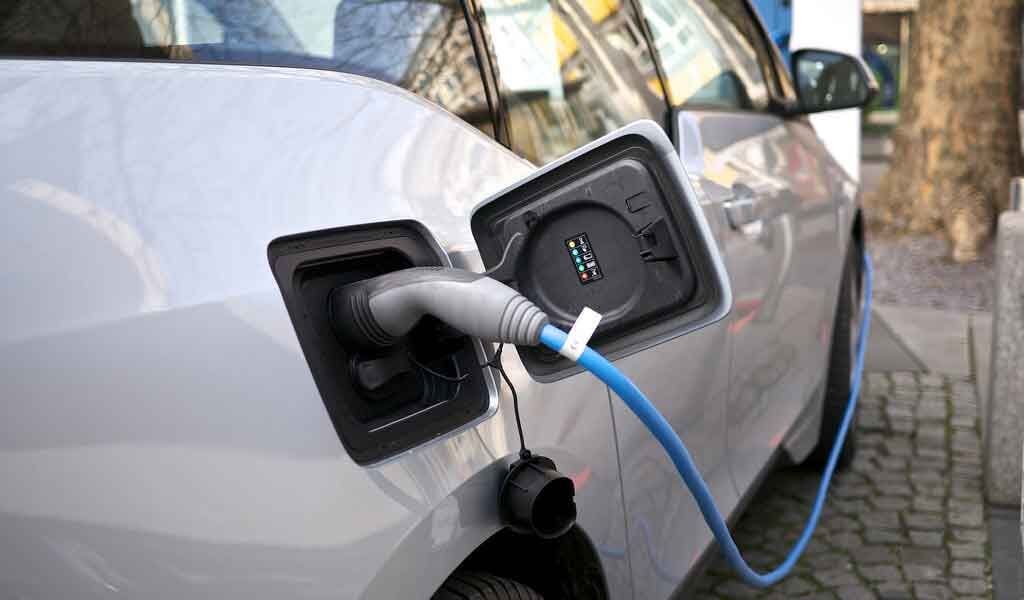Switch to electric vehicles & get incentives up to Rs. 2.5 lakh, says Government
After much deliberation, government has drafted a policy for electric vehicles which proposes to offer incentives of up to Rs. 2.5 lakh to those switching and scrapping their old vehicles. The scheme, which awaits approval, also includes plans to set up charging stations in metro-cities and along a major highways.
 After much deliberation, government has drafted a policy for electric vehicles which proposes to offer incentives of up to Rs. 2.5 lakh to those switching and scrapping their old vehicles. The scheme, which awaits approval, also includes plans to set up charging stations in metro-cities and along a major highways.
After much deliberation, government has drafted a policy for electric vehicles which proposes to offer incentives of up to Rs. 2.5 lakh to those switching and scrapping their old vehicles. The scheme, which awaits approval, also includes plans to set up charging stations in metro-cities and along a major highways.Are you planning to buy a car? You might want to consider an electric one. The Department of Heavy Industries(DHI) has circulated a draft policy which proposes that the government may offer incentives up to Rs. 2.5 lakh to those switching to electric vehicles and scrapping their old petrol and diesel fueled vehicles, under a Rs 9,400 crore scheme.
How it benefits buyers and carmakers
The policy, which is still in its initial stage, will offer an incentive of Rs. 30,000 to buyers of electric two-wheelers, costing up to Rs. 1.5 lakh, and of Rs. 1.5-2 lakh to buyers of electric cars to be used as taxis, costing up to Rs. 15 lakhs. The incentives are proposed to be in the form of sops for investment to manufacture parts of such motor vehicles. Cab aggregators could benefit from these. Individuals buying an electric car will also receive similar sops if they scrap their pre-BS III vehicles and get a certificate from the approved scrapping centres.
The automobile industry had been eagerly awaiting the announcement of the government’s policy. Under the FAME (Faster Adoption and Manufacturing of Hybrid and Electric vehicles in India) scheme of 2015, the government had offered incentives for electric and hybrid vehicles of up to Rs. 29,000 on bikes and Rs. 1.38 lakh on cars. However, Phase II of FAME will extend only to vehicles used for public transport, commercial purposes and two-wheelers. This policy is likely to disappoint the carmakers, who were expecting a more comprehensive plan, spanning all types of vehicles.
The changing policy of the government
Government’s stance on electrification of automobiles has wavered drastically in the last one year. From announcing an ambitious aim of 100% electrification by 2030, to stating that India doesn’t need any policy for electric vehicles, the policy makers seemed to be in a fix. NITI Aayog, the government think-tank, along with the Rocky Mountain Institute, had released a report on transformative mobility solutions last year. It emphasises on a clear role of governance policy and incentives in the transition from diesel and petrol vehicles to e-vehicles. Since the electric vehicles market is still in its elementary stages, the large-scale development of such automobiles would require infrastructural support from the government. The Centre seems to have risen to the occasion now.
For manufacturers of electric vehicle components, the government has proposed to provide special capital investment subsidy up to 25%. It has also earmarked Rs. 500 crores, as venture capital fund, to help start-ups in this field. The automobile industry had already initiated strategies for developing electric vehicles. Once the new policy is put into action, its effectiveness in aiding the growth of the industry will be put to test.
Will the policy make it convenient to own electric vehicles?
Individual buyers and fleet operators will be looking forward to reduction in mobility costs. Reduction in dependence on crude oil imports will surely boost the economy. But the ultimate aim of electrification of automobiles is not only to provide a more cost effective and efficient mobility solution, but also to reduce the carbon-footprint. The current draft policy is an important step in this direction. Or is it?
Electricity supply and charging infrastructure will be the decisive factor in the outcome of this strategy. Along with incentives, the DHI plans to have one charging point for every 9 sq kms in all metros, that is cities with population above a million, and in identified smart cities. Along major highways, it plans for a charging point on both sides of the road every 25 kms. But who will be supplying the power? India’s Electricity Act prohibits entities other than state-run distribution companies from selling power. In April, the government clarified that setting up of charging stations would not require a separate license. But the service provider would have to team up with the state-run distribution boards for the supply. We will have to see how this affects the cost and convenience of owning an electric vehicle.
Moreover, switching from crude oil-based fuel to electricity, would not immediately reduce green-house gas emission, as thermal power plants account for approximately 86% of the power generated in the country. Promotion of electric vehicles will have to coincide with policies for cleaner fuels to be incorporated in the power sector. Only then the goals of electrification can be fulfilled.
The policy is still under scrutiny. It might undergo changes before it gets the final nod. After all, the government has proved to be fickle when it comes to electric vehicles.


